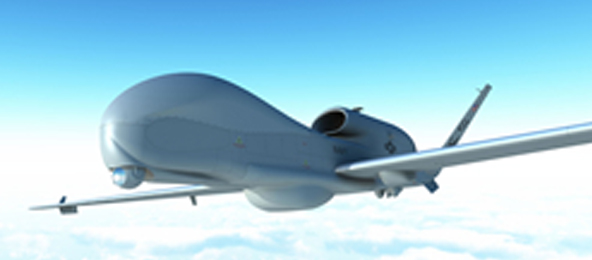Northrop Grumman has made improvements to its high-flying Global Hawk since a Pentagon weapons test found shortfalls with the unmanned aircraft, according to a company executive.
A May report by the director of operational test and evaluation for the U.S. Defense Department found that the Global Hawk Block 30 variant was “not operationally effective for conducting near-continuous, persistent” intelligence, surveillance and reconnaissance, based on testing conducted last October through December.
George Guerra, vice president for High Altitude Long Endurance programmes for Northrop aerospace systems, said the company has worked with the U.S. Air Force to make improvements to Global Hawk since those tests were conducted. For example, a new electrical generator had been installed on the unmanned aircraft and was performing well, having flown “several thousands of hours” without any issues to date, Guerra said.
Global Hawks have been used this year over Japan in disaster recovery efforts in wake of the March earthquake and tsunami, and are currently being deployed over Libya in the NATO-led enforcement of a no-fly zone.
The Pentagon weapons test report provided “an assessment of the system at a snapshot in time which was at the end of last year,” Guerra told Reuters. “Since then, we’ve incorporated some of those improvements and we saw that the system performed quite well over Japan and Libya.” Guerra also said Northrop was making inroads in efforts to bring down Global Hawk costs. “We’ve got over 200 initiatives that we are evaluating to help make the system more affordable,” he said.
The late 2010 Pentagon tests of Global Hawk focused on operations to detect, locate, identify, and monitor targets and operations of intelligence interest. The report, which is required ahead of a full-rate production decision, noted that the Global Hawk Block 30 version couldn’t consistently generate or sustain long endurance missions, and added that frequent failures of air vehicle parts hurt reliability and spurred demand for vital spare parts. It made recommendations for corrective actions.
“In the long run, the report should help us make the system that much more capable for the warfighter,” Guerra said.
Source: Reuters

